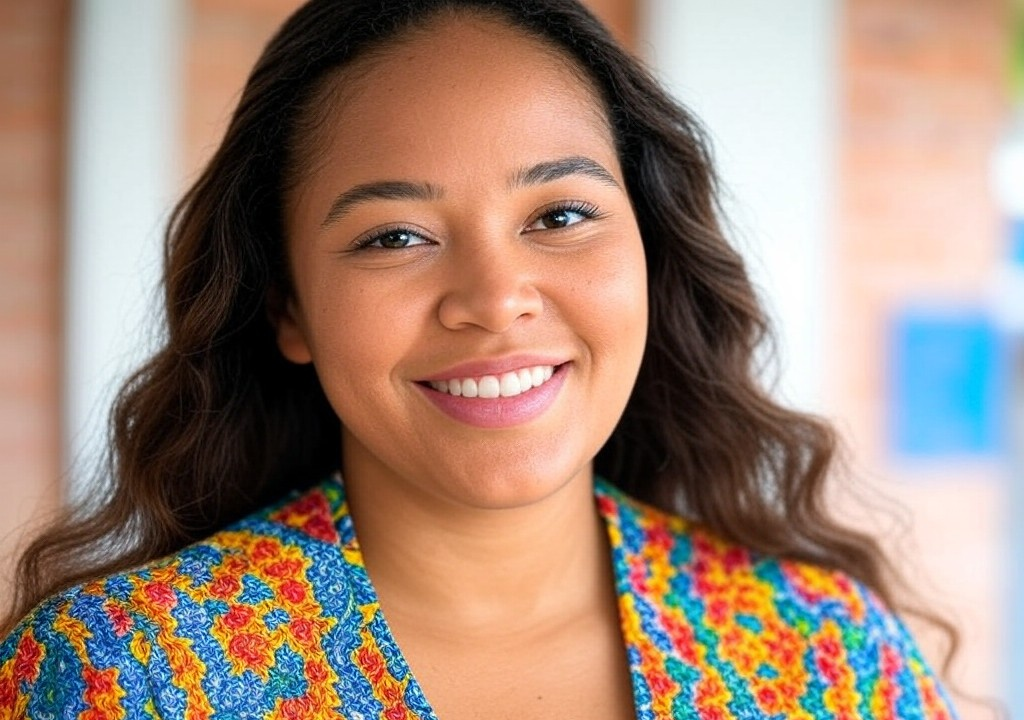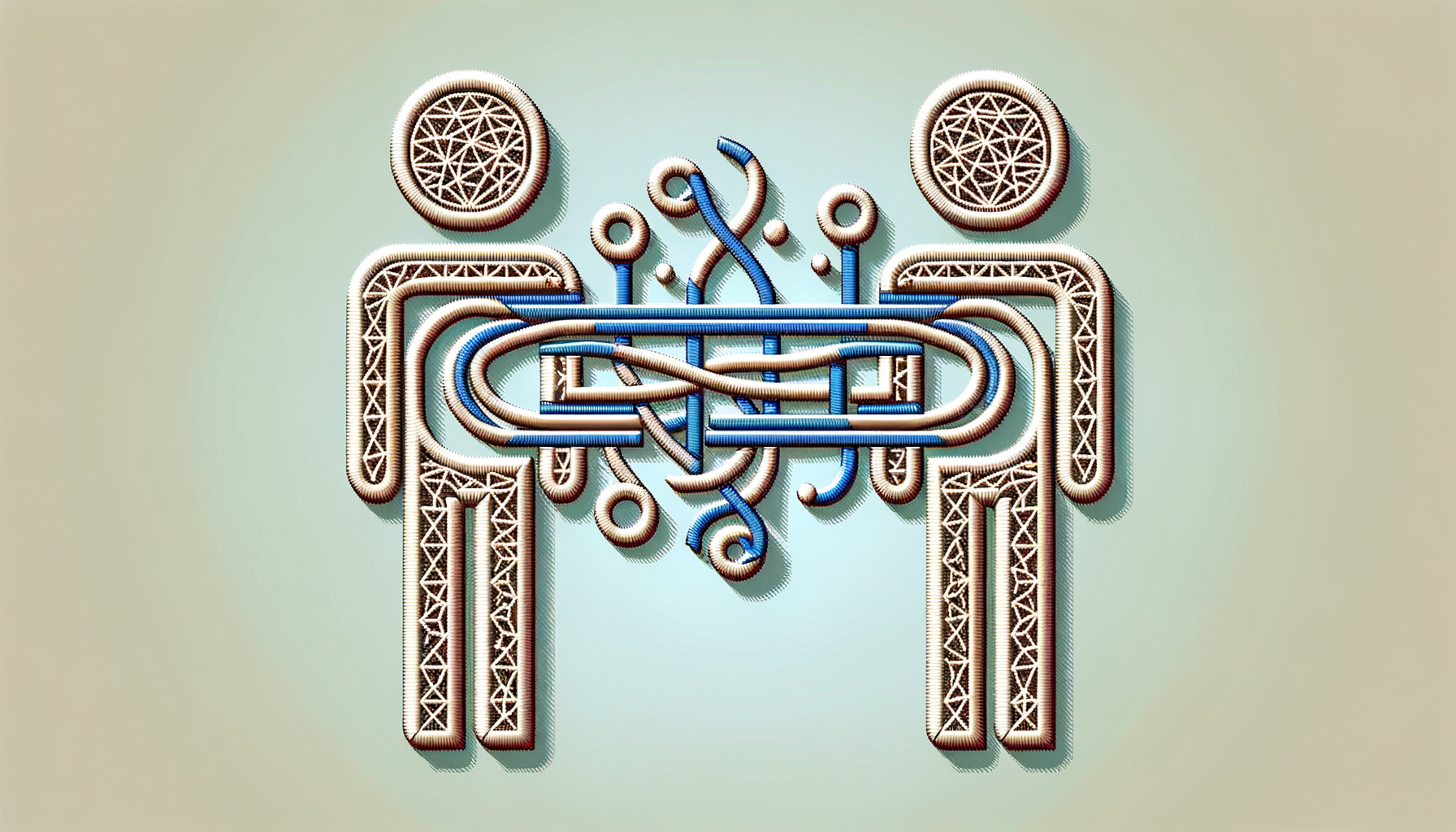"Everyone mispronounces your name when they first meet you, I bet." If I had a dollar every time someone said this to me—usually followed by a butchered "E-leh-uhhhh-na?" or a hesitant "Eye-lee-AH-na?"—I’d own a beachfront casa by now. My name, Ileana, sets the tone for how people interact with me. It’s a conversation starter, an icebreaker, and sometimes, a test of patience. More than that, though, it’s where my identity begins. And in the world of relationships, whether romantic or platonic, how we share and claim our name shapes the bridges we build with others.
Let me explain.
A Name is a First Impression
Ever seen someone squint at your Starbucks cup trying to decipher what’s scrawled on it? Welcome to my life. I’ve gotten “Eliana,” “Liliana,” and one unforgettable “Elmo.” My name has been turned into an unintentional Rorschach test for every barista in Houston. And while I used to bristle at the butchering, I realize now: every mispronunciation is an invitation to connect.
Think about it. Names are a doorway into someone's world. When you introduce yourself on a first date, your name is the very first thing you offer. The way you say it, the confidence with which you carry it, and how you respond to someone’s inevitable attempt to shorten it into a cute nickname (no, Chad, I will not be "Illy") says a lot about you.
Here’s what I’ve learned:
- Own your pronunciation: Whether your name is as common as Sarah or as layered as Ileana (two vowels, one long sigh), saying it with pride sets the tone. The confidence in your name mirrors the poise you bring to a relationship.
- Be patient with the corrections: Flirting in real-time sometimes isn’t as easy as a swipe and a "Hey." Correcting someone’s misstep—be it your name or your boundaries—is a micro act of learning how to teach people to treat you.
The Culture We Wear in Our Names
Being Latina in Texas, my name is much more than an identifier—it’s a cultural flag. “Ileana” carries the cadence of my Cuban-Mexican roots. In college, my Spanish professor even told me it’s the kind of name "you can dance to" (true story). Growing up in the East End of Houston, surrounded by cousins named Yesenia, Alejandro, and Estefanía, I didn’t think there was anything “different” about my name. But when I spent a semester in Madrid, people there saw my name as exotic and uniquely Latin. For me, it felt grounding, a reminder of home.
Names with rich cultural meaning tie us to our histories, but they can also expose us to stereotypes or assumptions. This is especially true when dating. I’ve been asked things like, “Did your parents name you after someone famous?” Nope. (Although, shoutout to Ileana Ros-Lehtinen, the first Cuban-American woman elected to Congress. Coincidence?) I’ve also had to navigate people fetishizing my Latina identity. Spoiler alert: Any introduction involving “I love Sofia Vergara!” is a red flag.
Here's how culture intersects with connection:
- Share the story behind your name: Not every name has a dramatic origin, but even the smallest anecdotes—like how your Abuela lobbied hard for it—make for personal, meaningful conversations.
- Challenge the assumptions: If someone tries to define your identity based solely on your name, it’s not your responsibility to educate, but it is your power to set the narrative.
The Nickname Dilemma
Let’s talk about nicknames because a lot of you fellow uniquely-named folks will relate. I resisted nicknames my entire life. “Ile," “Illy," “Nana"—none of them ever fit me. Ileana, to my ears, feels complete, musical, unapologetic. But the people closest to me, like my siblings and one sneaky boyfriend from a few years back, shortened it anyway. And after a while, I realized it was their way of claiming intimacy. Personalizing the name meant creating their own shorthand for affection.
There’s something both funny and special about nicknames—it’s a delicate balance between losing your name’s integrity and gaining someone’s unique take on you:
- Set boundaries (but be flexible): If a nickname irks you, make that clear. But let it slide when it feels truly endearing. The nickname a partner gives you can become an inside joke or a touchstone for your relationship.
- Give a counter-nickname: Gotta love reciprocity! If someone insists on calling me “Illy,” you’d better believe I’m casually assigning them “Bean,” "Socks," or something equally unexpected.
Dating and the Spelling Bee of Life
Here’s a little experiment: Write out your own name phonetically, hand it to your newest date, and see how they do. Kidding! Mostly. But have you ever considered how someone handles your name as a low-stakes compatibility test? One ex of mine, born and raised in the Midwest, could never really "roll his Rs," and the first time he tried pronouncing "Ileana" with the elongated Spanish "eh-leh-AH-na," I actually snorted salsa out of my nose. But he tried! He asked questions. And eventually, he nailed it.
Here’s why it matters:
- Effort counts more than perfection: A person who listens when you explain yourself—your name, your story, your quirks—is someone worth investing time in.
- Inside jokes help you bond: That salsa incident? It became an ongoing joke. He swore he deserved a diploma just for getting my name right. Playfulness builds bridges.
Your Name as Your Legacy
At the end of the day, our names are both a constant and a chameleon. They follow us from our awkward teen years (remember how everyone called you by your AIM username?) to the unfolding chapters of adulthood. In dating and relationships, your name evolves, gaining weight as someone says it softly during a late-night conversation or enthusiastically introduces you to their friends.
For me, Ileana has gone from a source of embarrassment during middle school roll call (teachers never got it right) to a badge of pride. Every time I introduce myself, I think of my parents picking that name, of my father staying up all night arguing that my mother’s choice (Maria, no shade) didn’t quite fit the way "Ileana" did. And now, in every mispronounced “Illy? Eliana?” I find resonance in their instincts and my own determination to own who I am.
Final Takeaway: Build Bridges with Intention
Your name—whether simple, intricate, or somewhere in between—is the first line in the story of who you are. When you share it, correct it, or adapt its pronunciation for someone else, you’re revealing a piece of yourself. Be proud of it. Laugh over it. Use it as a bridge to build connection. Because at the end of the day, every meaningful relationship begins with a name shared across a room, said with curiosity, and heard with care.
And if someone still calls me “Elmo?” Well, that’s a bridge I might not cross.




















